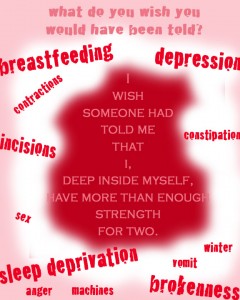In graduate school, I took a class called, “The Spirituality of the Body.”
It was an intense course, and took on the questions of life. The kinds of questions that are so deep, so mysterious that most people gloss over them in regular conversation. Or, in the discomfort with the unknown, find a short-fit answer and tuck it into their packets, satisfied to have to no longer struggle over the unanswerable questions of body and life. It seemed fitting that an entire academic course could be devoted to tackling such formidable questions.
There was a particular class that stands out in my mind that addressed the issue of mental disability. Specifically, we looked at mental retardation, individuals whose brain growth was either stunted or limited in its capacity. The class was confronted with a question: In the context of Catholic faith, how do you explain why some people are born with mental retardation?
It started a discussion that spanned nearly two weeks of class.
We tackled the answers that were passed down from other generations:
There was a sin somewhere in the family line and this is a direct result of that act of disobedience.
There are only certain types of people and families that can take care of someone with special needs and that is why that certain family was hand-picked by God to take care of “God’s special children.”
People with mental retardation serve as a reminder to those who are “normal,” that we are blessed and graced by God, and we should be grateful for those blessings.
People with mental retardation have special struggles in this life because they chose this path before they were born.
Each one was carefully considered at the heart of its meaning and intention and each one was eventually struck down.
It was then that the professor decided to let us know her thoughts. And even though she had finished her graduate work and dissertation at Harvard and taught some of the most distinguished theology on the planet, she offered a very simple reasoning, “Perhaps this is the regulation of life. We are not normal. They are not special. Nor are any people with special circumstances that require extra care for basic function. Perhaps this is the natural course of life. Whatever or whomever life comes from, this is the churning of it. It’s a part of life. There’s nothing to figure out. There is no why. This is – we all are – what life produces.”
I’ve been thinking about that a lot: the natural course of life and how much value and preservation we put into assuring “normal” people in our births and pregnancies and realities. Over the weekend, a close friend V* shared a recent miscarriage from a few months ago. Even though it’d been a few months, even though she had a healthy son, even though she was pregnant again, her and her partner’s eyes filled as they told us the pain and question of what that miscarriage brought them. The heartbeat of new life and possibility simply stopped beating, with no explanation.
“There’s nothing to say,” V* told me. “There’s no consolation, no words, nothing. There’s nothing you can do or say. All I know is that life is so incredibly fragile and the line that separates life from death is very, very thin.”
She went on to tell me what doctors told her about miscarriage: it happens all the time. It’s a natural course of the body. It’s what the body does. It can produce life and sometimes only sustain it for a short period of time. It’s a mystery yes, but is it uncommon, no. The words “natural” “this is what happens” “normal functioning” were used. And while that did not comfort my friends much, it did ring bells of familiarity in my head.
It reminded me of, “The Spirituality of the Body,” and how some of the basic questions of life have no answers and our acceptance or refusal to accept the normality of pain, suffering, death, passing, illness, is entirely up to us when determining our realities. The more we accept, the more peace we find. The more we insist on artificial and superficial definitions of normal, functioning, healthy, productive, worthiness – the more disruption we’ll find in our spiritual lives.
The more we prize able-bodied, traditionally educated minds on two walking, shapely legs, the more we lose in our ability to see life – in its perfection – at every stage and age and state. Life.
Life.
I see my son differently because of this reasoning. I don’t see children as small things waiting to grow up. I see them perfectly whole and acceptable as they are. Every inch precious and fitting in the time they are born and in whatever step they are developmentally. When they cry, it’s from a place as real as my need to breathe and feel love. When they laugh, it’s every bit as joyful as when I slap my couch with loud squeals and giggles.
Children are not adult in waiting. They are complete as is, gifts today as they were yesterday and the day before that.
My cousin who is diagnosed with profound mental retardation is not part of a man. Or a sad story. He’s a 28 year old man.
****
I once had a mentor who said, “Life is sweet as it is short. Life is fine as it is fleeting.”
Like one sip of port wine. Like a faceful of an August breeze.
The longer you wait to accept life as is – as fair and unfair, however long or brief that time is, in whatever condition it is birthed – the more time you spend in the land of wishes and worry, and less in the world of learning and compassion.
